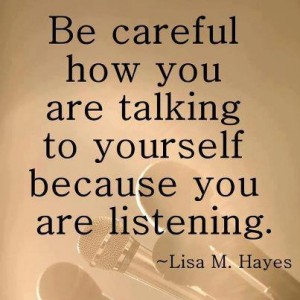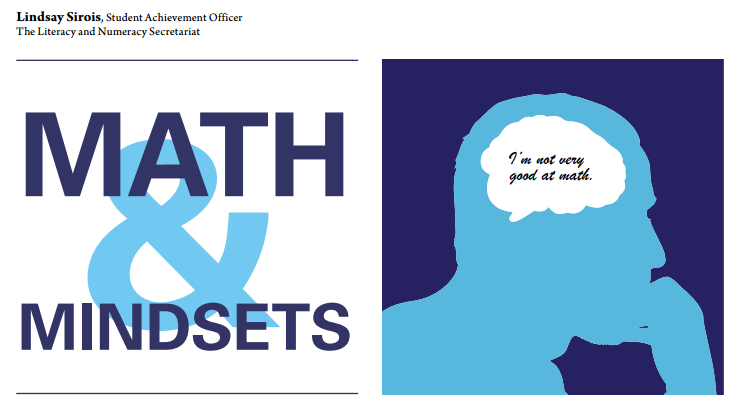 “I’ve just never been good at math.” “Math is not my thing.” You’ve likely heard statements like this many times (I might be guilty myself). Interestingly, a colleague of mine recently pointed out that when it comes to reading, people are far less likely to be proclaiming similar statements. Why is this? It is because we live in a culture that accepts a phobia toward mathematics as status quo. I say this not to criticize people who are uncomfortable with mathematics, but rather to reflect on the message we send to students about learning mathematics and, in turn, to consider that by simply changing our math mindsets, we can influence students in believing that they too can be successful in mathematics.
“I’ve just never been good at math.” “Math is not my thing.” You’ve likely heard statements like this many times (I might be guilty myself). Interestingly, a colleague of mine recently pointed out that when it comes to reading, people are far less likely to be proclaiming similar statements. Why is this? It is because we live in a culture that accepts a phobia toward mathematics as status quo. I say this not to criticize people who are uncomfortable with mathematics, but rather to reflect on the message we send to students about learning mathematics and, in turn, to consider that by simply changing our math mindsets, we can influence students in believing that they too can be successful in mathematics.
Students need to believe that they are capable of learning mathematics. Positive self-talk is one way to begin to shift the internal belief systems of students who do not feel positively about mathematics. For example, instead of saying, “I don’t get this!” students are encouraged to say, “What am I missing?” or “What might I try next?” Of course, there is more to learning mathematics than believing you can do it. BUT believing you are capable of doing well is a first  step and research shows that this DOES make a difference!
step and research shows that this DOES make a difference!
Many week nights I find myself at home trying to help my own children with gr. 9 and 10 mathematics. It has quickly become obvious to me that I have forgotten much more than I have retained about high school mathematics. Even so, I try to catch myself before saying, “I just can’t help you with that.” Instead I try to focus on asking questions and guiding them back to their work to find the tools they need to be successful. Even if they are not certain of next steps my message is to try the work because it is okay to make mistakes. The reason children should be encouraged to try a problem, even if mistakes are made, is because making mistakes provides opportunities for the brain to grow. When a mistake is made and learned from, new synapses are created in the brain (Sirois, 2014). Now that is powerful learning!
There is a connection between educator beliefs about mathematics and student achievement. When educators believe children have the ability to grow mathematically, students will achieve at higher levels (Boaler, 2013 in Sirois, 2014). I believe that the same is true for parents. The message you send about mathematics has a powerful impact. Encourage your child(ren) to:
- Embrace challenges,
- Persist with setbacks,
- See effort as the key to mastery,
- Embrace constructive criticism,
- Find inspiration in the success of others.
(Dweck, 2006 in Sirois 2014)
|| click image to read the entire article ||
Sirois, L. (2014). Math & mindsets. Principal Connections. 18(1); 6-8
The Catholic Principals’ Council also ran this article in their magazine, but also added a few others which you might enjoy. Find that link here https://www.cpco.on.ca/files/9614/1080/4481/PCFall2014sneakpeek.pdf
If you find other positive self-talk articles about promoting a better attitude towards the understanding of mathematics, please send me the link in the comments below. I’d love to hear from you.

You’ll like this research article-
http://www.math.umt.edu/tmme/vol7no2and3/8_Muelleretal_TMMEvol7nos2and3_pp.307_320.pdf
Continue to stimulate our minds!